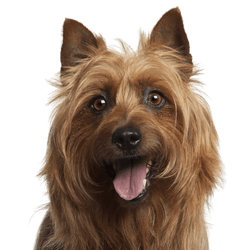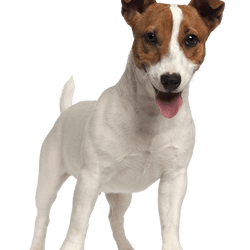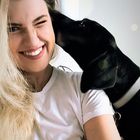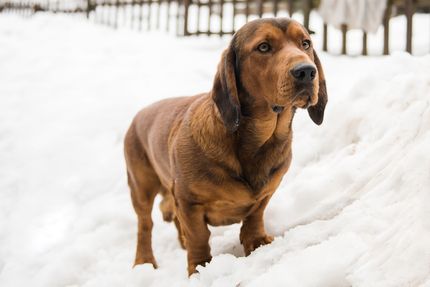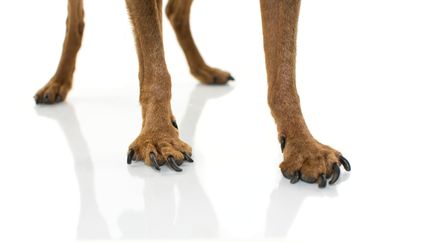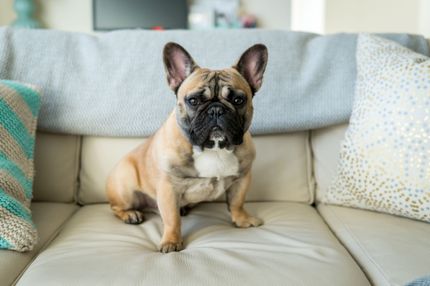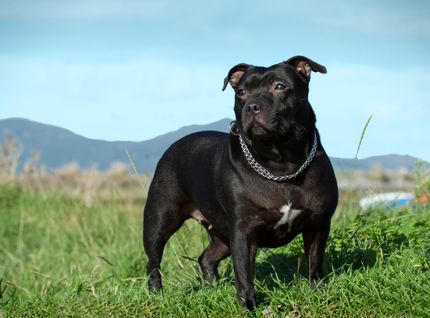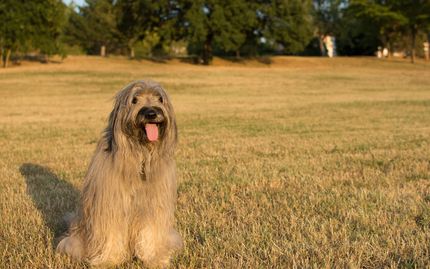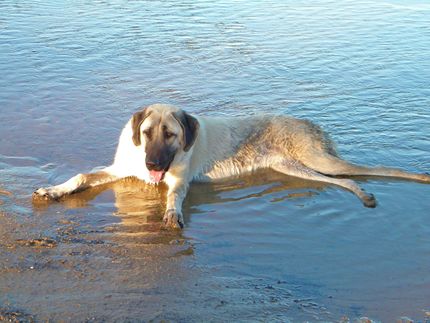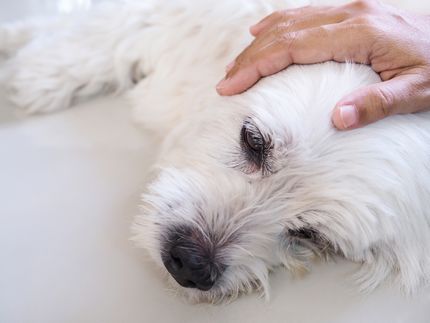Facts & Origin
Rustralian Terrier (Australian Terrier and Jack Russell Terrier mix)
The Rustralian Terrier is a cross between two lively and independent terrier breeds: the Australian Terrier and the Jack Russell Terrier. Both breeds have their origins in hunting, which is reflected in their active nature and alertness.
Suitability and attitude
With their active nature and compact size, Rustralian Terriers are suitable for a variety of households. They could be a good fit for active individuals or families who enjoy spending a lot of time outdoors. However, due to their hunting backgrounds, they should not be kept in homes with small pets as they may view them as prey.
| Alternate Name | - |
| Origin | Australia - England |
| Life expectancy | 10 - 16 years |
| Care requirements | low-maintenance |
| Activity level | average - high |
| FCI group | not recognised |
| AKC group | not recognised |
| KC group | not recognised |
More Australian terrier mixes
More Jack Russell Terrier mixes
Attitude, character and temperament of the breed
Possible character traits
The Rustralian Terrier is known for its energy and intelligence. They are active dogs that love to run, play and explore. Their intelligence makes them easily trainable, although they can also have an independent streak that requires consistent training. They are friendly and can be very affectionate with their families, often developing a close bond with one particular person.
With their active, lively nature and intelligence, Rustralian Terriers make excellent companions for those looking for a small but sturdy dog . They fit well with active families and can be a loyal and loving companion. With proper care, regular training and lots of love, the Rustralian Terrier can be an excellent addition to many homes.
Character
Care and Health
Rustralian Terriers are generally healthy dogs, but can be prone to some of the health problems that affect their parent breeds , including skin problems, eye problems, and patellar luxation. Their grooming needs can vary, depending on the characteristics of their coat, but most require only occasional brushing and bathing. They need regular exercise to stay healthy and happy.
What does this mixed breed look like?
The Rustralian Terrier is a small dog that typically stands between 23 and 30 cm tall and weighs between 5 and 9 kg. Their coat can have the characteristics of both parent breeds, resulting in a short to medium length coat that can be rough or smooth. Color-wise, they can vary from light brown to black to white, and some may also have spots or markings.
| Fur length | medium - short |
| Fur | flat coated - rough-haired |
| Ear shape | Standing Ears - Tilt-ear |
| Tail | short - lang |
| Anatomy | rugged, strong, sporty |
| Size ♀ | 20 - 38 cm |
| Weight ♀ | 5 - 8 kg |
| Size ♂ | 20 - 38 cm |
| Weight ♂ | 5 - 9 kg |
| Suitable For | - |
Known Diseases
Hip dysplasia (HD)
Hip dysplasia (HD) is a genetic condition in dogs where the hip joint is not shaped properly. This leads to pain, stiffness and restricted movement.
Tartar
If dogs don't get a good food or sugary food, tartar can quickly appear.
Diabetes
The metabolic disease diabetes often occurs in overweight dogs.
Patellar luxation
Patellar luxation is the term used to describe a displacement of the kneecap, which is one of the most common causes of lameness in dogs.
Cataract
Cataracts are still one of the most common causes of blindness, even in dogs.
Numbness
Often occurs in old age.
Ataxia
Ataxia (from Greek ἀταξία ataxia 'disorder' 'irregularity') is a generic term in medicine for various disorders of movement coordination. Ataxia can occur even when there is no paralysis (paresis), that is, when there is normal muscle strength.
Atopy
Canine atopic dermatitis or environmental allergy is characterized by itching with scratching, biting, and rubbing of the face, paws, and belly
Dermatophytosis
Dermatophytosis (synonym dermatophytosis, from ancient Greek τὸ δέρμα derma, German 'skin' and ancient Greek φυτόν phyton, German 'plant') or tinea (Latin for 'woodworm', 'moth') is a skin fungal disease caused by specific fungi (dermatophytes).
extreme whiteness
May be associated with some other diseases.
Legg-Calve-Perthes
Legg-Calvé-Perthes disease (aseptic femoral head necrosis) is a growth disorder of the femoral head.
Dislocations
Lenticular and patella luxation occur in some breeds and affect the eye.
Myelopathy
Degenerative myelopathies of dogs are a series of slowly progressing neurological diseases associated with destruction of the spinal cord. These diseases are associated with slowly progressive movement disorders of the hindquarters.
FAQ
-
The Rustralian Terrier grows between 20 and 30 cm high.
-
It can be found in black, brown, white, tan and blue colors. Most of the mixed breeds have a medium length, smooth coat, but depending on the parent breed can be short haired or long haired.
-
The Rustralian Terrier is very energetic and easy to train. They are intelligent, adaptive and playful. However, they can also defend very well and have a strong protective instinct.
-
This dog needs to be trained regularly so that they learn to follow commands. Training should be done with positive reinforcement to motivate him.
-
He should receive a balanced diet rich in vitamins and minerals. For the daily diet should use a high quality dry food, made specifically for terriers. The addition of fresh vegetables, fruits and meat can also be good for the mixed breed.
